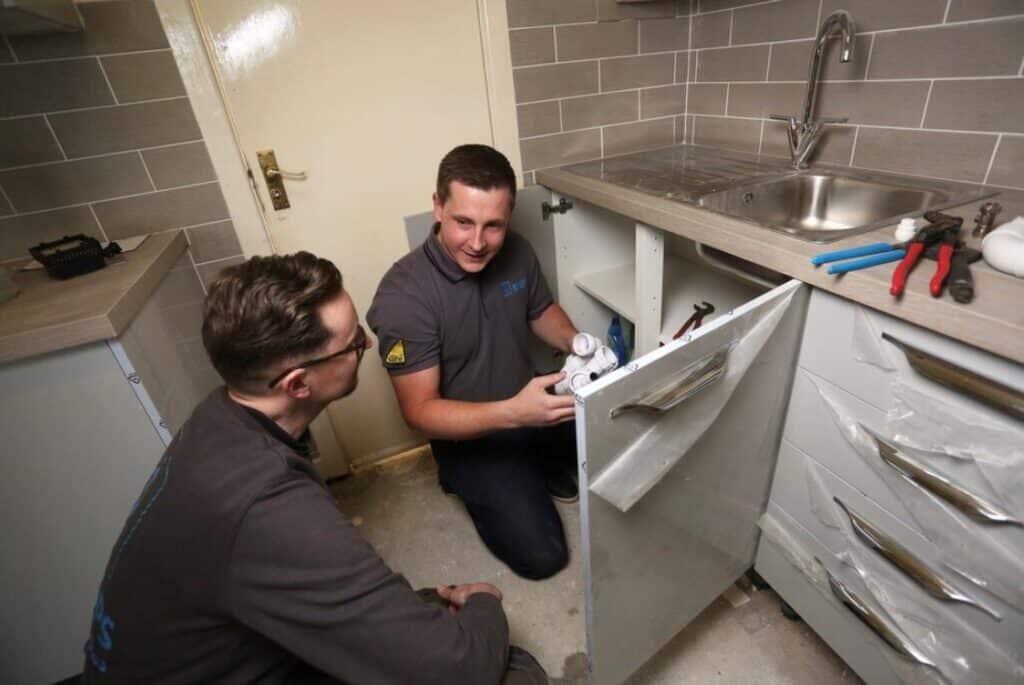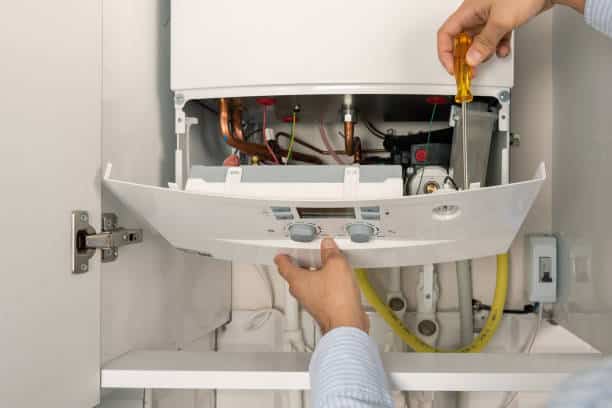
When our central heating systems are functioning properly, many of us don’t think twice about them, but occasionally this might turn out to be an expensive error.
When the evenings grow darker and the weather turns foul, central heating becomes an absolute need.
So, to ensure that your boiler is always ready to heat your home, keep it well maintained and secured throughout the year, especially during those cold winter evenings!
Winter presents various obstacles for your heating system, making it harder to produce the heat your home requires to be comfortable during the colder months.
Due to the elements, you may have frozen pipes, clogged drains, and poor water heating during the cold winter.
Take a look at some of our top boiler maintenance recommendations to learn how to keep your boiler running well during the colder months.
Book Your Service In!
A qualified gas-safe engineer should service boilers once a year. Check to see when your boiler was last serviced and schedule one before winter arrives.
Even though your boiler may appear to be in good working order, it is always a good idea to get it serviced to check that all parts are in excellent working order. A service will also allow your specialist to detect and repair any growing problems before they cause your boiler to stop working. That is something you will want to avoid during the cold months!

Check Boiler Pressure Regularly
Boiler pressure is one of the most obvious symptoms of many frequent problems that can impact the operation of the unit, and thus your complete central heating system.
Typically, the pressure gauge is mounted on the front of the boiler unit. This will give you the boiler pressure reading. It’s always a good idea to keep a watch on the pressure reading, monitoring for any changes that could push the pressure into excessively high or low areas.
If your boiler pressure begins to edge towards the high or low portions of the gauge, you should take immediate action to diagnose and correct the problem. If left unchecked for too long, the incorrect pressure can have disastrous consequences for your heating system.
Keep A Look Out For Leaks
Leaks are another symptom of difficulties within your unit or problems with the pipes that connect to it. Fortunately, these leaks usually start tiny, giving you plenty of time to detect them and take proper action before the problem gets more serious.
Especially in cold weather, you should inspect the area around your unit to ensure there are no leaks. If there are, try to figure out where they’re coming from and call in an engineer to help you fix any parts that might be creating the issue. If you detect a leak quickly, your engineer may be able to repair the device, saving you the cost of a total replacement.
Bleed Your Radiators
This is a simple task, yet it is all too often overlooked! Remember to bleed radiators on a regular basis to safeguard your property from heating difficulties.
We recommend doing this at least once a year, and it’s a good idea to schedule the task before turning on your heating for the winter. While failing to bleed radiators may not necessarily cause problems with your boiler, it will have a significant impact on how warm your home feels once the heating is turned on. This small task might make all the difference during the colder months.
Keep Your Boiler Clean
Several boiler maintenance activities must be performed by expert specialists, but there are many that may be completed by a homeowner. Take cleaning as an example. To keep the area around your boiler as clean as possible, remember to dust around the unit on a regular basis. However, leave the cleaning of internal parts to the professionals!
Turn Your Heating On Before You Need It
If you don’t turn on your heating all year and just turn it on when your house becomes uncomfortably chilly, you’re likely to discover problems with your boiler when you actually need it to start operating.
Check that your boiler is adequately maintained all year by turning it on and cranking up the heat for a few minutes to ensure everything is working properly. If you do this, you’ll notice any problems with your heating system before you need it, and you’ll have plenty of time to get it serviced before it becomes a true emergency.
